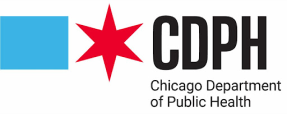Understand Health Code Requirements for Food Establishments


Health Code Requirements
The Chicago Department of Public Health (CDPH) is committed to protecting the public's health by conducting science-based inspections of all food establishments. CDPH Sanitarians conduct inspections for new businesses, existing businesses and in response to a complaint.
There Are Different Types Of Health Inspections
Business License Health Inspections
New food establishments, or a transfer of ownership, that are applying for a business license must pass a health inspection by CDPH before the license will be issued. After an application for a license has been filed with the Department of Business Affairs and Consumer Protection, a health inspector from the CDPH will contact the applicant to arrange for an inspection. The applicant can schedule an appointment with the Health representative at the Department of Business Affairs and Consumer Protection at 312.744.5430, 312.74.GOBIZ (744.6249).
During the inspection, the health inspector will assess the types of food that will be prepared and the methods used for preparing and serving the food. This information will be used to assign a ‘risk-level’ – risk 1, 2 or 3 – to the food establishment. This risk level will be used to determine how frequent a food establishment needs to be inspected.
Routine Health Inspections
Once a food establishment is licensed and operating, a health inspector will periodically conduct unannounced inspections. The frequency of these inspections is based on the risk level assigned to the establishment.
In general, risk 1 establishments are inspected twice per year, risk 2 establishments once per year, and risk 3 establishments every other year. If problems are identified, the establishment may face fines or possible closure, depending on the severity of the problems.
Complaint-Based Health Inspections
CDPH receives around 4,000 complaints against food establishments each year. In response, CDPH health inspectors conduct unannounced inspections at the establishment.
Ways to Prepare for a Health Inspection
You should know what to expect, here are some ways to prepare:
- Download the Chicago Municipal Code that outlines all of the requirements that food establishments must meet: City of Chicago Municipal Code (chapters 4-8, 7-38, 7-40, and 7-42) and the Chicago Board of Health Rules and Regulations.
- Attend a free Inspection workshop geared towards new businesses, offered once a month by the Department of Business Affairs and Consumer Protection: monthly workshop offered by the Department of Business Affairs and Consumer Protection.
Health Code Violations
During routine inspections, or in response to a complaint a health inspector may issue one or more citations to the food establishment. These citations are based on the following violations:
Priority Violations
This category includes such occurrences as:
- Inadequate storage temperatures
- Improper food handling practices
- Improper personal hygiene
- Rodent and/or insect infestation
- Lack of hot running water
Priority violations create an immediate health hazard that carry a high-risk of causing food-borne illness. Priority violations must be corrected immediately; if they cannot be corrected immediately, the license will be suspended, and the food establishment must close. Once the violations are corrected, the food establishment operator must sign an affidavit stating the violations have been corrected, and schedule a follow-up inspection All violations must be corrected in order for the establishment to reopen.
Priority Foundation Violations
This category includes such occurrences as:
- No certified food manager
- No written employee health policy
- Food not properly protected from contamination during storage, preparation, display, service, or transportation
- Inadequate pest control
Priority Foundation violations create a potential health hazard if not corrected in the timeframe specified by the health inspector. If serious violations are identified, an unannounced follow-up inspection will be conducted by the health inspector at a later date.
Core Violations
Core violations include such occurrences as:
- Poorly constructed or maintained walls, ceilings or floors
- Improper storage of soiled and clean linens, coats, and aprons
Core violations do not pose an immediate threat to the public’s health. A follow-up inspection is not performed if there are only Core violations. No citations are issued for Core violations.
The City of Chicago has adopted a new food code rules to better ensure food safety. For all inspections completed after July 1, 2018, the Chicago Department of Public Health will use the following check list.
Foodborne Illness Risk Factors and Public Health Interventions
Supervision
- Person in charge present, demonstrates knowledge, and performs duties
- City of Chicago Food Service Sanitation Certificate
Employee Health
- Management, food employee and conditional employee; knowledge, responsibilities and reporting
- Proper use of restriction and exclusion
- Procedures for responding to vomiting and diarrheal events
Good Hygenic Practices
- Proper eating, tasting, drinking, or tobacco use
- No discharge from eyes, nose, and mouth
Preventing Contamination by Hands
- Hands clean & properly washed
- No bare hand contact with RTE food or a pre-approved alternative procedure properly allowed
- Adequate handwashing sinks properly supplied and accessible
Approved Source
- Food obtained from approved source
- Food received at proper temperature
- Food in good condition, safe, & unadulterated
- Required records available: shellstock tags, parasite
Protection from Contamination
- Food separated and protected
- Food-contact surfaces: cleaned & sanitized
- Proper disposition of returned, previously served, reconditioned & unsafe food
Time/Temperature Control for Safety
- Proper cooking time & temperatures
- Proper reheating procedures for hot holding
- Proper cooling time and temperature
- Proper hot holding temperatures
- Proper cold holding temperatures
- Proper date marking and disposition
- Time as a Public Health Control; procedures & records
Consumer Advisory
- Consumer advisory provided for raw/undercooked food
Highly Susceptible Populations
- Pasteurized foods used; prohibited foods not offered
Food/Color Additives and Toxic Substances
- Food additives: approved and properly used
- Toxic substances properly identified, stored, & used
Conformance with Approved Procedures
- Compliance with variance/specialized process/HACCP
Good Retail Practices
Safe Food and Water
- Pasteurized eggs used where required
- Water & ice from approved source
- Variance obtained for specialized processing methods
Food Temperature Control
- Proper cooling methods used; adequate equipment for temperature control
- Plant food properly cooked for hot holding
- Approved thawing methods used
- Thermometers provided & accurate
Food Identification
- Food properly labeled; original container
Prevention of Food Contamination
- Insects, rodents, & animals not present
- Contamination prevented during food preparation, storage & display
- Personal cleanliness
- Wiping cloths: properly used & stored
- Washing fruits & vegetables
Proper Use of Utensils
- In-use utensils: properly stored
- Utensils, equipment & linens: properly stored, dried, & handled
- Single-use/single-service articles: properly stored & used
- Gloves used properly
UTENSILS, EQUIPMENT, AND VENDING
- Food & non-food contact surfaces cleanable, properly designed, constructed & used
- Warewashing facilities: installed, maintained & used; test strips
- Non-food contact surfaces clean
PHYSICAL FACILITIES
- Hot & cold water available; adequate pressure
- Plumbing installed; proper backflow devices
- Sewage & waste water properly disposed
- Toilet facilities: properly constructed, supplied, & cleaned
- Garbage & refuse properly disposed; facilities maintained
- Physical facilities installed, maintained & clean
- Adequate ventilation & lighting; designated areas used
EMPLOYEE TRAINING
- All food employees have food handler training
- Allergen training as required
CITY OF CHICAGO ORDINANCE COMPLIANCE
- Previous priority foundation violation corrected
- Previous core violation corrected
- Summary Report displayed and visible to the public
- Compliance with Clean Indoor Air Ordinance
- Removal of Suspension Sign




